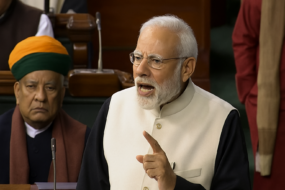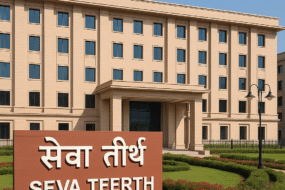Government Declares Aadhaar, PAN, Ration Cards Inadequate to Prove Citizenship
In a significant policy clarification, the central government has stated that commonly used identification documents such as Aadhaar cards, PAN cards, and ration cards do not serve as definitive proof of Indian citizenship. While these documents are valid for various administrative and welfare purposes, they fall short of establishing legal citizenship.
The government now officially recognizes birth certificates and domicile certificates as the only valid documents for affirming Indian citizenship.
This move comes in the wake of recent verification drives during which several illegal foreign nationals were found in possession of Indian identification documents like Aadhaar, PAN, and ration cards. Officials argue that while such documents confirm residency or tax compliance, they do not inherently establish a person’s status as a citizen.
Key Documents to Establish Citizenship:
- Birth Certificates: Issued under the Registration of Births and Deaths Act, 1969, these validate an individual’s claim of being born in India.
- Domicile Certificates: These are issued by state or union territory governments to confirm that an individual has resided in a specific region for a set period, reinforcing claims of Indian citizenship.
What This Means for Citizens:
This clarification is crucial for those who do not currently possess a birth or domicile certificate but rely solely on other forms of ID. Citizens are now advised to ensure that their birth and domicile records are accurate, updated, and stored safely.
These documents may be necessary in situations such as applying for government jobs, obtaining a passport, or presenting proof of citizenship in legal matters.
If individuals do not have these records, they should approach their local municipal or state authorities to secure them promptly. This will help avoid future legal complications and affirm their citizenship beyond doubt.





